9 start with U start with U
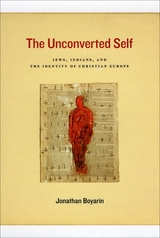
Europe’s formative encounter with its “others” is still widely assumed to have come with its discovery of the peoples of the New World. But, as Jonathan Boyarin argues, long before 1492 Christian Europe imagined itself in distinction to the Jewish difference within. The presence and image of Jews in Europe afforded the Christian majority a foil against which it could refine and maintain its own identity. In fundamental ways this experience, along with the ongoing contest between Christianity and Islam, shaped the rhetoric, attitudes, and policies of Christian colonizers in the New World.
The Unconverted Self proposes that questions of difference inside Christian Europe not only are inseparable from the painful legacy of colonialism but also reveal Christian domination to be a fragile construct. Boyarin compares the Christian efforts aimed toward European Jews and toward indigenous peoples of the New World, bringing into focus the intersection of colonial expansion with the Inquisition and adding significant nuance to the entire question of the colonial encounter.
Revealing the crucial tension between the Jews as “others within” and the Indians as “others without,” The Unconverted Self is a major reassessment of early modern European identity.
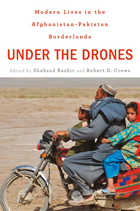
In the West, media coverage of Afghanistan and Pakistan is framed by military and political concerns, resulting in a simplistic picture of ageless barbarity, terrorist safe havens, and peoples in need of either punishment or salvation. Under the Drones looks beyond this limiting view to investigate real people on the ground, and to analyze the political, social, and economic forces that shape their lives. Understanding the complexity of life along the 1,600-mile border between Afghanistan and Pakistan can help America and its European allies realign their priorities in the region to address genuine problems, rather than fabricated ones.
This volume explodes Western misunderstandings by revealing a land that abounds with human agency, perpetual innovation, and vibrant complexity. Through the work of historians and social scientists, the thirteen essays here explore the real and imagined presence of the Taliban; the animated sociopolitical identities expressed through traditions like Pakistani truck decoration; Sufism’s ambivalent position as an alternative to militancy; the long and contradictory history of Afghan media; and the simultaneous brutality and potential that heroin brings to women in the area.
Moving past shifting conceptions of security, the authors expose the West’s prevailing perspective on the region as strategic, targeted, and alarmingly dehumanizing. Under the Drones is an essential antidote to contemporary media coverage and military concerns.
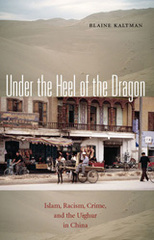
The Turkic Muslims known as the Uighur have long faced social and economic disadvantages in China because of their minority status. Under the Heel of the Dragon: Islam, Racism, Crime, and the Uighur in China offers a unique insight into current conflicts resulting from the rise of Islamic fundamentalism and the Chinese government’s oppression of religious minorities, issues that have heightened the degree of polarization between the Uighur and the dominant Chinese ethnic group, the Han.
Author Blaine Kaltman’s study is based on in-depth interviews that he conducted in Chinese without the aid of an interpreter or the knowledge of the Chinese government. These riveting conversations expose the thoughts of a wide socioeconomic spectrum of Han and Uighur, revealing their mutual prejudices. The Uighur believe that the Han discriminate against them in almost every aspect of their lives, and this perception of racism motivates Uighur prejudice against the Han.
Kaltman reports that criminal activity by Uighur is directed against their perceived oppressors, the Han Chinese. Uighur also resist Han authority by flouting the laws—such as tax and licensing regulations or prohibitions on the use or sale of hashish—that they consider to be imposed on them by an alien regime. Under the Heel of the Dragon offers a unique insight into a misunderstood world and a detailed explanation of the cultural perceptions that drive these misconceptions.

This book controversially argues that Al Qaeda has clear aims, and that the only way to defeat it is to engage with its arguments in a serious way.
Since the publication of the first edition in 2006, Mohamedou has brought the text right up-to-date. Starting with Al Qaeda's creation almost twenty years ago, and sketching its global mutation, Mohamedou explains that there is a cogent strategy to Al Qaeda's actions. He shows that the 'war on terror' is failing, only serving to recruit more terrorists to Al Qaeda's cause. He also puts forward a case for how the international community can best respond.
Arguing that it is dangerous to dismiss Al Qaeda as illogical and irrational, this incisive and original book is important for policy-makers and ideal for undergraduates in international relations, Middle East studies and peace/conflict studies.
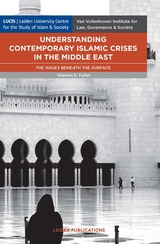
First, Graham E. Fuller focuses on Shari’a law and its appropriate role, if any, in the politics and governance of the Muslim world, thereby further exploring why identity may be the most important factor in examining politics in the Middle East today. He also addresses the current Shi’ite-Sunni conflict, going beyond theological approaches found in most Western analysis to better understand the many more extra-religious factors also at work. Perhaps most importantly, this book claims that the appearance of ISIS has stretched the perennial phenomenon of political Islam to the extreme. Fuller concludes by asking what ISIS implies for the future of the Middle East and for Muslims’ understanding of Islam itself.
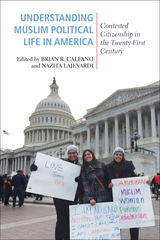
“Muslim Americans are at a political crossroads,” write editors Brian Calfano and Nazita Lajevardi. Whereas Muslims are now widely incorporated in American public life, there are increasing social and political pressures that disenfranchise them or prevent them from realizing the American Dream. Understanding Muslim Political Life in America brings clarity to the social, religious, and political dynamics that this diverse religious community faces.
In this timely volume, leading scholars cover a variety of topics assessing the Muslim American experience in the post-9/11 and pre-Trump era, including law enforcement; identity labels used in Muslim surveys; the role of gender relations; recognition; and how discrimination, tolerance, and politics impact American Muslims.
Understanding Muslim Political Life in America offers an update and reappraisal of what we know about Muslims in American political life. The editors and contributors also consider future directions and important methodological questions for research in Muslim American scholarship.
Contributors include Matt A. Barreto, Alejandro Beutel, Tony Carey, Youssef Chouhoud, Karam Dana, Oz Dincer, Rachel Gillum, Kerem Ozan Kalkan, Anwar Manje, Valerie Martinez-Ebers, Dani McLaughlan, Melissa R. Michelson, Yusuf Sarfati, Ahmet Tekelioglu, Marianne Marar Yacobian, and the editors.
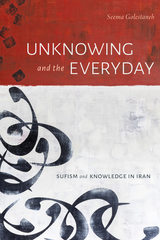
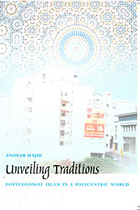
Majid moves beyond Edward Said’s unmasking of orientalism in the West to examine the intellectual assumptions that have prevented a more nuanced understanding of Islam’s legacies. In addition to questioning the pervasive logic that assumes the “naturalness” of European social and political organizations, he argues that it is capitalism that has intensified cultural misunderstanding and created global tensions. Besides examining the resiliency of orientalism, the author critically examines the ideologies of nationalism and colonialist categories that have redefined the identity of Muslims (especially Arabs and Africans) in the modern age and totally remapped their cultural geographies. Majid is aware of the need for Muslims to rethink their own assumptions. Addressing the crisis in Arab-Muslim thought caused by a desire to simultaneously “catch up” with the West and also preserve Muslim cultural authenticity, he challenges Arab and Muslim intellectuals to imagine a post-capitalist, post-Eurocentric future. Critical of Islamic patriarchal practices and capitalist hegemony, Majid contends that Muslim feminists have come closest to theorizing a notion of emancipation that rescues Islam from patriarchal domination and resists Eurocentric prejudices.
Majid’s timely appeal for a progressive, multicultural dialogue that would pave the way to a polycentric world will interest students and scholars of postcolonial, cultural, Islamic, and Marxist studies.
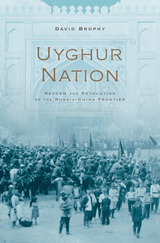
The meeting of the Russian and Qing empires in the nineteenth century had dramatic consequences for Central Asia’s Muslim communities. Along this frontier, a new political space emerged, shaped by competing imperial and spiritual loyalties, cross-border economic and social ties, and the revolutions that engulfed Russia and China in the early twentieth century. David Brophy explores how a community of Central Asian Muslims responded to these historic changes by reinventing themselves as the modern Uyghur nation.
As exiles and émigrés, traders and seasonal laborers, a diverse diaspora of Muslims from China’s northwest province of Xinjiang spread to Russian territory, where they became enmeshed in political and intellectual currents among Russia’s Muslims. From the many national and transnational discourses of identity that circulated in this mixed community, the rhetoric of Uyghur nationhood emerged as a rallying point in the tumult of the Bolshevik Revolution and Russian Civil War. Working both with and against Soviet policy, a shifting alliance of constituencies invoked the idea of a Uyghur nation to secure a place for itself in Soviet Central Asia and to spread the revolution to Xinjiang. Although its existence was contested in the fractious politics of the 1920s, in the 1930s the Uyghur nation achieved official recognition in the Soviet Union and China.
Grounded in a wealth of little-known archives from across Eurasia, Uyghur Nation offers a bottom-up perspective on nation-building in the Soviet Union and China and provides crucial background to the ongoing contest for the history and identity of Xinjiang.
READERS
Browse our collection.
PUBLISHERS
See BiblioVault's publisher services.
STUDENT SERVICES
Files for college accessibility offices.
UChicago Accessibility Resources
home | accessibility | search | about | contact us
BiblioVault ® 2001 - 2024
The University of Chicago Press









